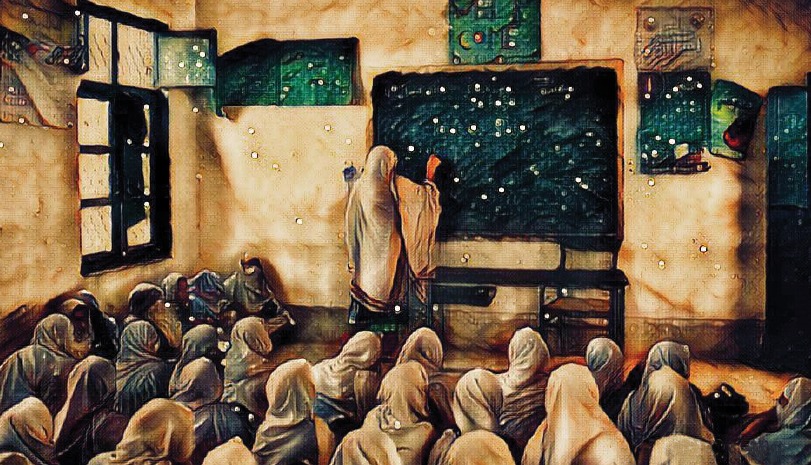The fundamental principles for any democratic society are choice, equity and inclusion. By echoing a populist-political demand for a single national curriculum, standardized exams, regimented testing regimes and uniform textbooks, we shall sponsor a polarized nation-state and thus impose a “one size fits all”. This brings the big education question into the picture: do we need ‘uniformity in the curriculum’ or ‘equity or inclusion in learning’ over the next 10 years?
Since Pakistan is far from its global commitment to the United Nations Sustainable Development Goals (SDGs) 2030, which is about assuring the world on quality, equal opportunity, access, inclusion and standards, our education regimes and policy provisions over the next decade. These must replace an empty mind with an open mind. In today’s time and age, uniformity is a war strategy, not a human capital strategy. Choice-based equitable quality education and inclusive public literacy should be the first line of defense for our national and social security over the next decade.
Read more: The ugly truth about Pakistan’s education system
What many of us do not realize is, while we may have 220 million subjects living in Pakistan, we are far from having as many citizens. Education and literacy over the next decade shall be the single common denominator for transforming subjects into the citizenry.
The trust deficient in education policy viz-a-viz federating units must be consolidated with the reconstruction or revision of the 18th constitutional amendment. This brings us to realize the fact that education should not be about ‘testing for nation’; it should be about ‘investing in society’. The contents, pedagogy, standards, framework and assessments of the curricula should remain with the federation since the provinces could take liberties which may result in putting the unity and ideology of the country at risk in the future.
Our Course of Action
As an educational theorist, I would suggest, there are two kinds of federations in the world; to hold-together and to come together, we need to make a move from ‘holding the provinces together’ to democratically persuading them ‘to come together’ for education.
Read more: How to reform Pakistan’s education system? An unpopular opinion
Suspicion and ideological disparity, and the conflict within educational responsibility paradigm have demonized the marketplace, may it be public, provincial or a private provider and must be undone. As a society and federation, we need to redefine the social contract in support of charter-of-education before any other charter. Our national curriculum and framework require informed unity; rather than enforced uniformity.
Over the next decade, we must move towards outcome-based education through digital inclusion, ICT integration, skill-based learning, non-standardized tests, choice-based curriculum and diversity in assessments; thereby spinning job creation, scaling entrepreneurship through digital, social and financial inclusion and nurturing sustainable models of national development.
Key Interventions to bridge the growing education and literacy gap must include – skill-based or vocational education as a winning strategy to prepare our youth for the future – financial literacy inclusion and instilling financial acumen across academic-marketplace – affordable interest-free study loans for undergraduate and postgraduate education – incremental doubling in the education budget for all – digital inclusivity, electronic and mobile learning ecosystem and infrastructure – training and capacity building of teachers and practitioners – enriched national curriculum – standards monitoring regime and regulatory oversight for educational institutions – need to embrace 22 million Out of School Children (OOSC) and finally, mainstreaming maddaris for national social cohesion and economic integration.
Read more: How to reform Pakistan’s education system? An unpopular opinion
Going forward, we must reflect and learn from the ongoing impact of the pandemic with the largest closure of educational institutions after the Second World War with 1.6 billion children out of school today. Hence, we must not get muddled in the self-inflicted debate of ‘medium of instruction’ in comparison to ‘medium of learning’. Nation-states among the global comity have transited from traditional blackboard-medium to whiteboard-medium, and now, we must embrace the digital-medium by ensuring equitable education ecosystem through connectivity, access and quality.
It is the need of the hour to revisit our social-contract and demonstrate choice and access in our national education policy; thus, ensuring a promising, inclusive yet sustainable future for our citizens, classrooms and country.
The writer is an educationist, a former minister and recognized as 500 Influential Muslims of the world. He tweets @FaisalMushtaq18


